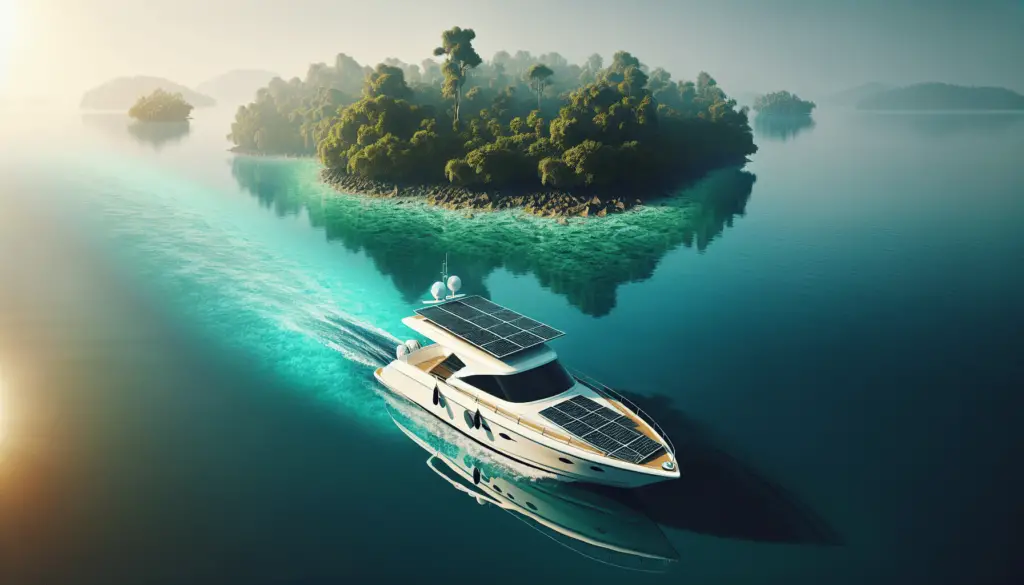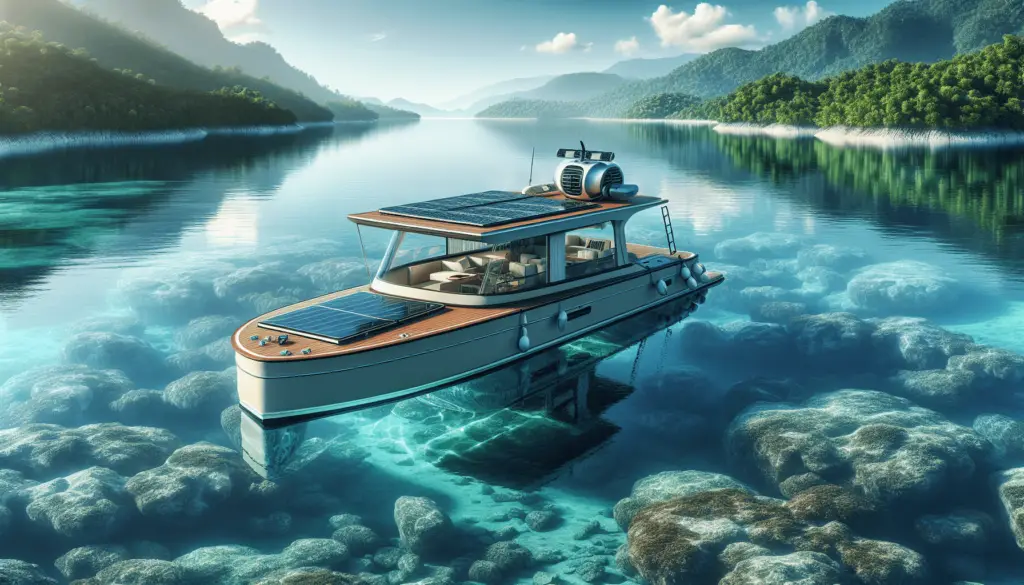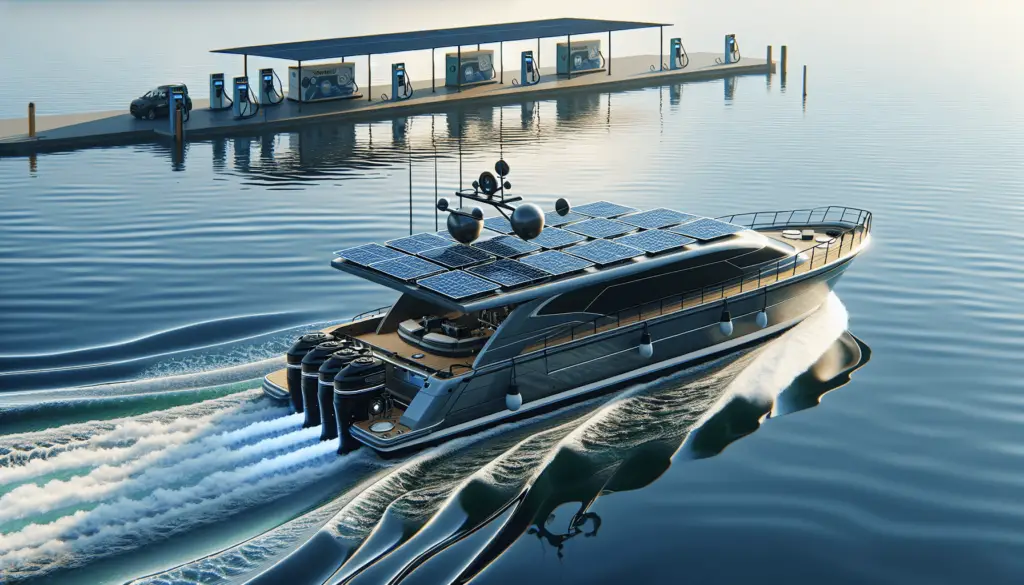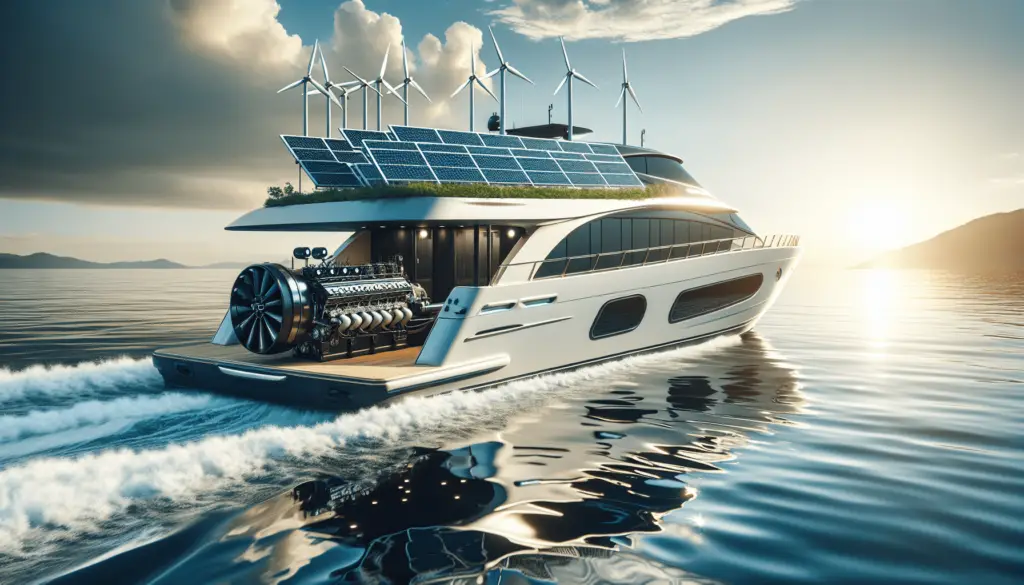You love the open sea, the wind in your hair, and the freedom you feel when you’re boating. But are you aware of the impact your boating adventures potentially have on the environment, especially in terms of carbon emissions? The article, “Most Effective Ways To Reduce Carbon Footprint While Boating,” discusses innovative methods and practical steps you can take to diminish this impact, helping protect our seas and marine life while still making the most of your aquatic escapades. Come aboard as we navigate through eco-friendly solutions to maintain the health of our beloeved blue planet!
Choosing the Right Boat
Boating is an immensely enjoyable pastime that can be even more rewarding if you approach it with environmental consciousness. One of the first steps towards practicing green boating is choosing the right boat.
Opt for smaller, lighter boats
You don’t always need a large energy-eating power-platform to enjoy the seas. Smaller, lighter boats not only use less fuel but are also easier to maneuver and have less impact on marine life. Remember that ‘the bigger the boat, the bigger the carbon footprint.’ So, make smart choices.
Consider electric or hybrid boats
As technology evolves, so do boats. Electric and hybrid boats are an excellent environmentally-friendly option. These boats emit significantly less carbon into the atmosphere. While they may cost more upfront, the long-term savings and environmental benefits are hard to ignore.
Invest in energy-efficient boat models
Investing in an energy-efficient boat model is one of the easiest ways to reduce your carbon footprint. These boats are designed with maximum efficiency in mind, using less fuel for greater speeds and optimizing design features such as hull shape for better performance, leading to less energy consumption.
Optimizing Boat Usage
To make the most of your boat, you can adopt simple practices that save energy, reduce costs, and lessen environmental impacts.
Limit speed to save fuel
While it is tempting to let loose and race through the water, limiting your speed can save surprisingly large amounts of fuel. Not only does going slow extend your boating trip, but it also gives you more time to revel in nature’s glory.
Maintain optimal load onboard
Keep a check on your boat’s load. The heavier a boat is, the more energy it needs to maintain motion. Optimal boat usage involves carrying only necessary items onboard, making your boat lighter, more fuel-efficient, and easier to handle.
Adopt smooth and gradual acceleration and deceleration techniques
Rapid acceleration and deceleration consume far more fuel than smooth, gradual changes in speed. Start slow, stay steady, and you’ll notice a difference in your fuel gauge and feel good about your environmentally-conscious boating habits.

Maintaining Boat Engine
Engine efficiency plays a crucial role in your boat’s overall fuel efficiency. Regular maintenance can help keep your engine in optimal working condition, further reducing your carbon footprint.
Regular tune-ups to ensure engine efficiency
Just like your car, your boat engine needs regular tune-ups. This ensures that it operates at peak efficiency, prolongs its lifespan, and prevents avoidable breakdowns that can be costly and harmful to the environment.
Use the right type of oil
Using the correct oil for your boat is crucial. High-quality marine oil can improve engine performance and extend its lifetime, leading to less frequent engine replacements – thereby reducing waste.
Keep propellors clean and free of debris
Clean propellers make for a smooth journey on waters. Algae, barnacles, or debris can affect the balance and performance of your boat propeller, negatively impacting your boat’s fuel efficiency. Ensure that you regularly inspect and clean them.
Using Renewable Energy Sources
When it comes to boat power, alternatives to fossil fuels are worth exploring.
Incorporate the use of solar panels
Imagine harnessing the sun’s energy while enjoying a day out on the waters. Solar panels can provide a clean, renewable power source for your boat, perfect for charging batteries and powering onboard appliances.
Consider wind power solutions
A boat sailing on wind power alone is a vision of eco-friendliness. It’s quiet, free, and emits no harmful gasses. Wind power can also serve as a supplementary power source for your boat, saving energy and reducing dependence on fossil fuels.
Experiment with water turbines
Water turbines work much like wind turbines, making use of the boat’s movement through water to generate power. It’s a great way to utilize the renewable energy of the sea!

Efficient Fuel Use
Fuel-efficient boating can minimize your carbon emissions substantially. Here are some ways to do it.
Always use the right fuel type
Using the right type of fuel for your boat is crucial for maintaining your engine and reducing emissions. Check your manufacturer’s guidelines and ensure that you’re fueling your vessel correctly.
Purchase fuel with higher ethanol content
Fuels with higher ethanol content, like E10, can reduce CO2 emissions significantly. Ethanol’s a renewable fuel, making it kinder to our environment.
Avoid overfilling the fuel tank
Overfilling your tank can result in fuel spillage, contributing to pollution and waste. Try to fill your tank slowly to prevent overfilling and stop fueling before reaching the top of the tank.
Waste Management
Sustainable waste management practices should be at the heart of every boater’s journey.
Control litter and steer clear of dumping waste
Litter management starts by ensuring you never discard waste into the water, right from plastic wrappers to cigarette butts to fishing line. It impacts marine life gravely.
Comply with appropriate waste disposal methods
Understand the legal and most effective ways to dispose of waste, like clearly marking trash and recycling bins onboard, or bringing back trash to shore for proper disposal.
Promote recycling onboard
Recycling onboard is an achievable goal. Make separate containers for recyclables like glass, metal, plastic, and paper to minimize overall waste production.

Environmentally Friendly Cleaning Practices
Your boat’s cleanliness can impact your environmental footprint.
Use eco-friendly cleaning products
Switch to cleaning products that are non-toxic, biodegradable, and marine-safe. Not just for the boat, but for personal use too. This protects the water quality and marine life.
Avoid high pressure washing
High-pressure washing can lead to waste runoff into the water. Instead, opt for targeted, low-pressure washes.
Clean boat regularly to prevent buildup
Regular cleaning prevents stubborn buildup that often requires potent chemical cleaning agents. A clean hull also improves fuel efficiency.
Responsible Boating Habits
Responsible boating ensures the safety of the marine ecosystem.
Respect marine life and habitats
Do your part to respect and protect marine life. Reduce noise pollution, keep a distance, and never feed wildlife.
Avoid shallow waters to prevent prop-dredging
Navigating through shallow water can disturb the seafloor, damaging marine habitats. Stick to charted waterways to keep marine life safe.
Minimize wake for shore erosion prevention
Large wakes can contribute to shoreline erosion and disturb marine life. Maintain slower speeds near shorelines and respect wake control zones.

Implementing Energy Saving Measures
Energy efficiency aids in reducing your carbon emissions while sailing.
Use energy-efficient appliances onboard
Energy-efficient appliances consume less energy, reduce emissions, and save money. Opt for low-energy counterparts – motors, refrigerators, air conditioners, etc.
Install LED or low energy lighting
LED lights consume less energy and last longer than traditional bulbs. By retrofitting your boat with LED or low energy lighting, you are adding to your boat’s energy efficiency.
Adopt effective insulation methods to save on heating and cooling
Good insulation means less reliance on heating and cooling appliances, thus saving energy. Consider improved window seals, thermal window coverings, and proper door seals.
Educating and Raising Awareness
Your efforts alone, while commendable, won’t be enough.
Promote green boating practices
Shout out about your efforts and influence others to adopt green boating practices. Encourage change by showcasing how easy and rewarding it can be.
Share knowledge with other boaters
Share your knowledge about green boating with fellow boaters. Simple tips can make a big difference.
Support and participate in eco-friendly boating initiatives
Get involved in environmental initiatives like clean-up drives, awareness campaigns, and supporting nonprofits. Every effort counts in making boating more sustainable.
Remember, reducing your boating carbon footprint isn’t just about doing less harm – it’s about doing more good. Let’s make waves, the right way!

